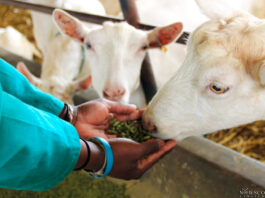By Latishka Thomas
The number of domestic banking institutions in Antigua and Barbuda may be whittled down to two as the government seeks to strengthen the bargaining power of local banks.
Currently, Antigua Commercial Bank (ACB), Eastern Caribbean Amalgamated Bank (ECAB) and Caribbean Union Bank (CUB) – which the government acquired majority share of – are the only domestic banks on the island. In the interest of maximizing on the closure of Scotiabank, Royal Bank of Canada (RBC) or any other international bank, Prime Minister Gaston Browne said that his intention is to establish the domestic banks in Antigua Barbuda as major players.
“There will be two banks ultimately. And, by the way, bank consolidation is nothing new…so the idea of having a small bank is an anachronism. And what is happening, too, with our domestic banks is that they are so small that they cannot command corresponding banking relations.
“The people of Antigua and Barbuda should become accustomed to the fact that in this country you would end up with two domestic banks … ACB will be one and the next one is likely to be ECAB, if they are the ones that we utilize to deal with the acquisition of Royal Bank branch here. Or, if they fail to capitalize on that opportunity and we use CUB to purchase Scotiabank, then it means that CUB will automatically become the largest player on the island and clearly would subsume the operations of ECAB,” Browne, the head of the government and the Minister of Finance stated.
He explained that though, ordinarily, CUB would not be a contender, the government owns 80 percent of it and will ensure by any means that state-owned banks are upscaled.
According to him, the undertaking will have innumerable benefits for the local populace. In fact, he said, “this is also good for depositors because the larger the bank is, with a larger capital base it is more security for depositors”.
The Finance Minister also went on to confirm the closure of the Royal Bank’s branch in Antigua. He said that in order to strengthen local banks, inorganic growth, mergers and acquisitions are necessary.
He declared that after spending more than $400 million of taxpayers’ money to secure three local banks during the last decade, the closure of Canadian banks in the OECS region affords local banks the opportunity to take center stage.
“It means that in order for our banks to command sustainable correspondent banking relations, they have to become bigger. There is almost a rule of thumb that in order to be banked for correspondent banking relations you must have at least one billion US dollars in assets, and even with a billion US dollars it does not quite guarantee you correspondent banking; but at least you stand a better chance at getting correspondent banking relations ,” Browne said.
He revealed that the largest domestic bank in the twin island state is ACB with $900 million in assets, while CUB has $200 million, but said they are too small sustain themselves.
Furthermore, Browne believes that the consolidation of local banks will make way for the upward mobility of Antiguans and Barbudans into managerial and middle managerial positions.
“If Republic Bank ends up as the owner, who do you think they are going to send to manage the bank? A Trinidadian. Who do you think manages Scotiabank now? A Canadian woman. So there is no opportunity for any upward mobility for the Antiguans and that has been a problem within the banking sector. In fact, I feel ashamed of ACB – no disrespect to the St. Lucian woman; she’s a capable woman – that they had to go to St. Lucia to get a banker.
“And that is one of the areas in which we have to start to channel our people to develop greater expertise so that we can control the commanding heights of our country’s economy. You cannot build a successful economy on an extractive model. We must be able to preside over our own affairs as an independent country, a sovereign country, and we must have people with the competence in certain sectors, certain critical sectors in particular,” he added.
He listed those essential sectors as energy, telecoms, and the banking sector, adding: “We cannot yield those three lucrative sectors to non-Antiguans and Barbudans.”



